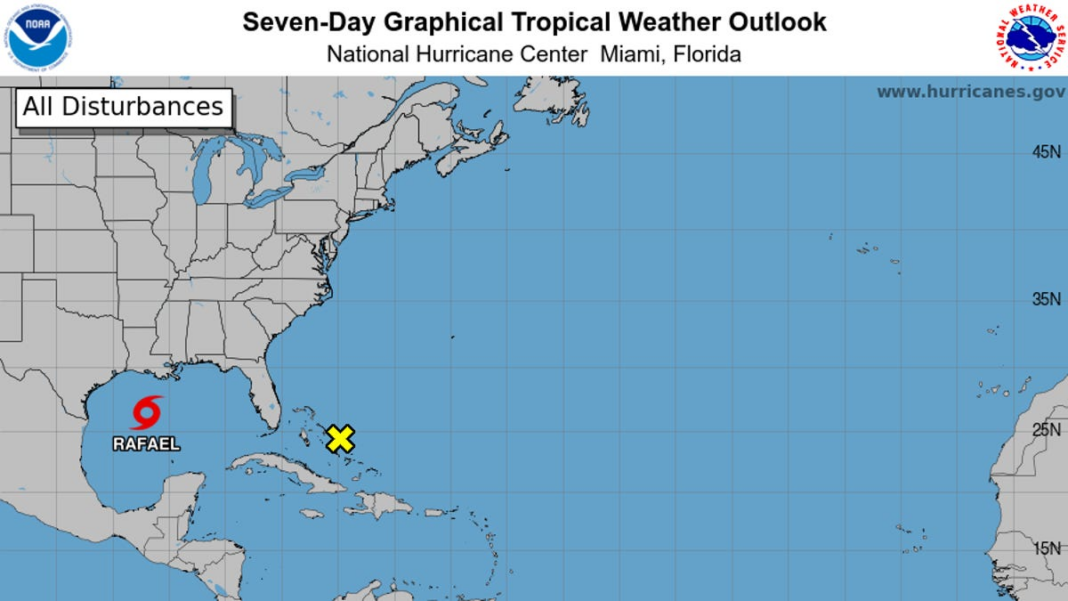Tropical Storm Rafael Weakens and Drifts in Gulf of Mexico: Check the Storm Tracker
While the forecast indicates challenging conditions, a system near the Bahamas is expected to generate heavy rain and strong winds as it moves westward over the Bahamas.
The National Hurricane Center predicts that Tropical Storm Rafael will weaken by Monday morning, just a few days after impacting Cuba as a Category 3 hurricane.
Rafael made landfall in Cuba as a Category 3 hurricane on Wednesday, leading to a nationwide power outage before heading towards the Gulf of Mexico.
Initially a tropical storm on Sunday morning, Rafael is projected to “drift over the central Gulf of Mexico” by Sunday night and shift south-southwest on Monday and Tuesday, according to the Miami-based National Hurricane Center.
Rafael’s maximum sustained winds reached 40 mph with stronger gusts, but is anticipated to diminish to a post-tropical remnant low by Monday.
Tropical Storm Rafael Tracker
National Hurricane Center Observing Low-Pressure Area
The NHC is monitoring a low-pressure area situated near the Bahamas.
This system is currently about 200 miles east of the Caribbean islands, but is unlikely to develop further as it enters an area with unfavorable conditions on Sunday.
Regardless of these conditions, heavy rainfall and gusty winds are forecasted as the system progresses westward across the Bahamas on Sunday night, per the NHC.
Over the next 48 hours and week, the system has only a 10% chance of developing, which is considered low.

